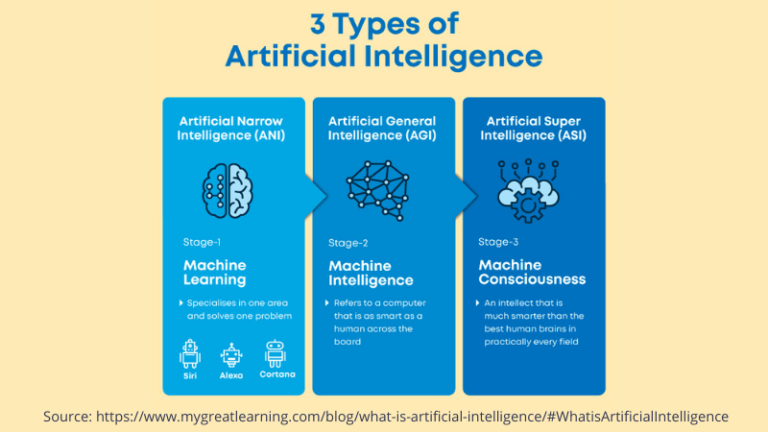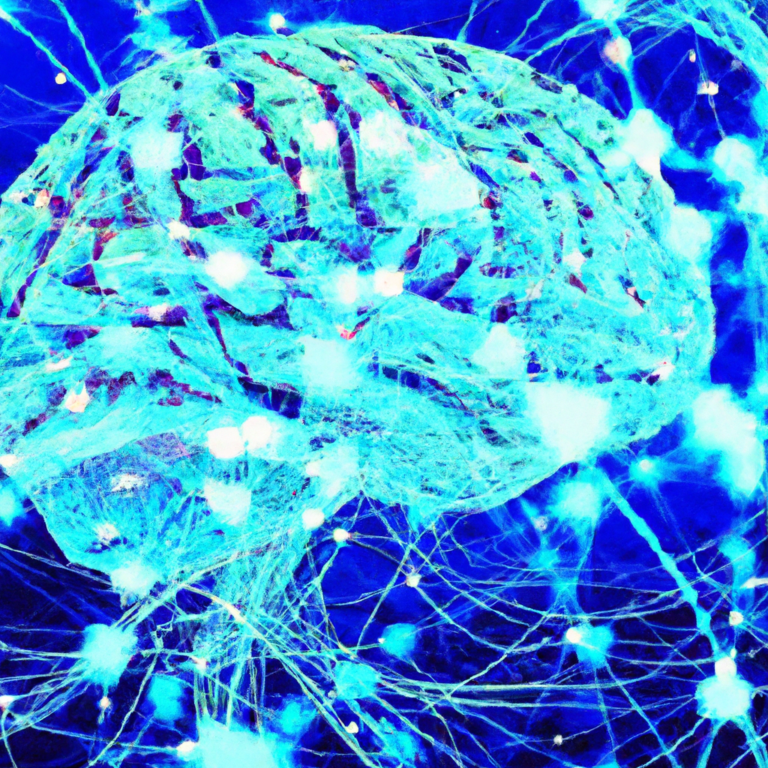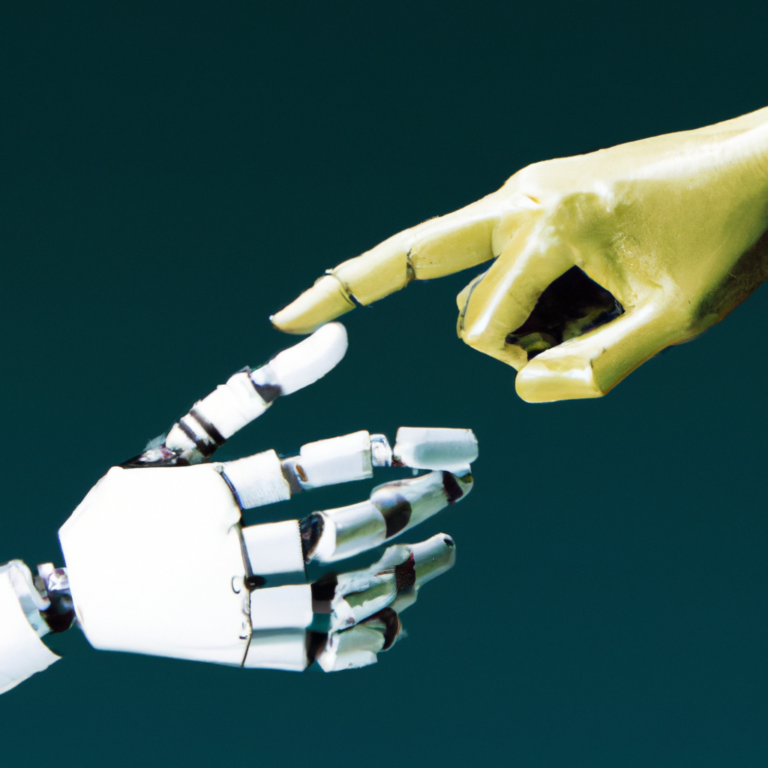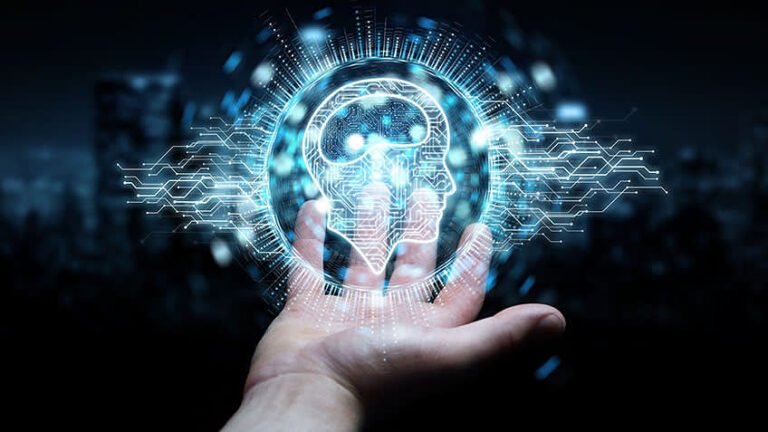What Is Artificial Intelligence?
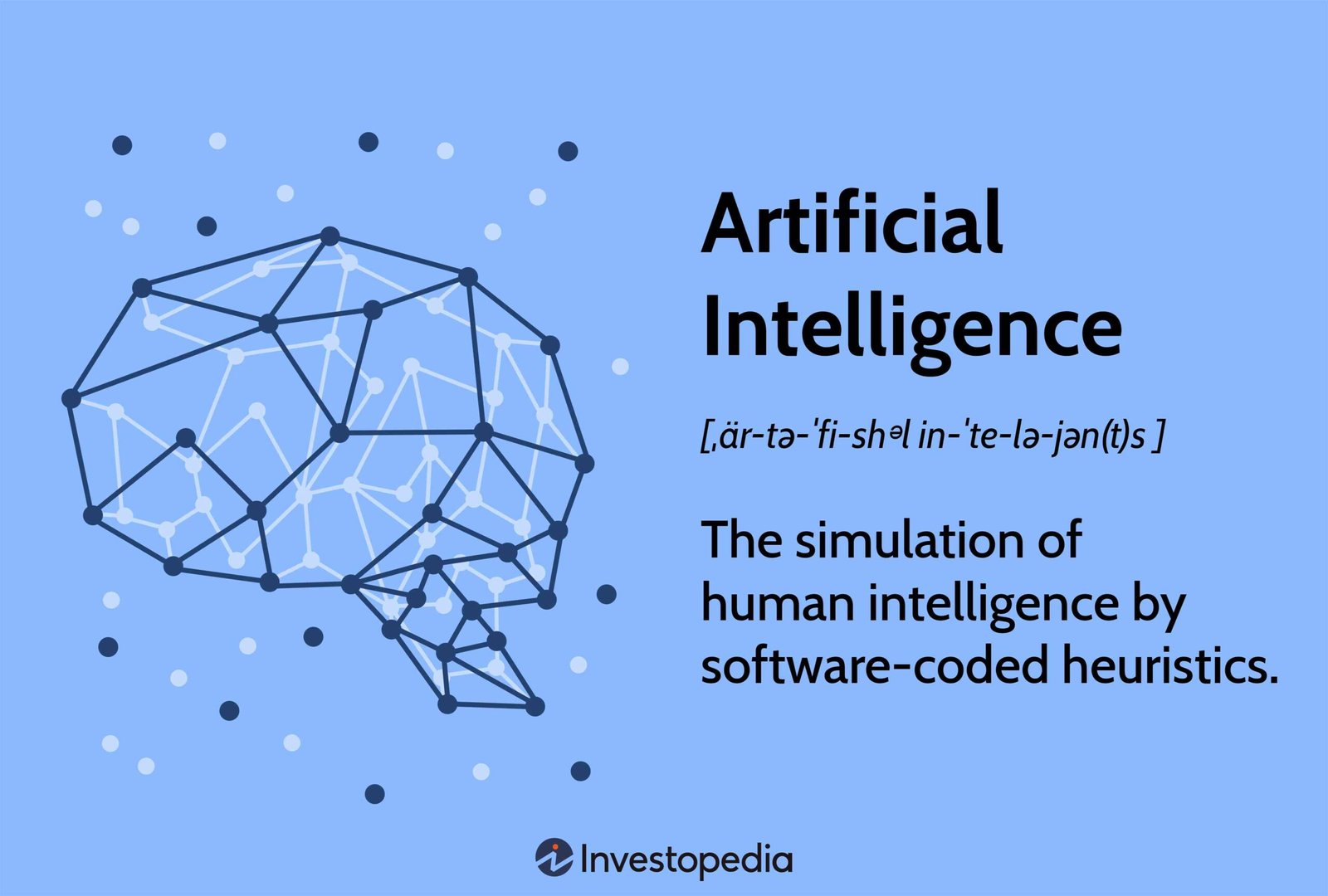
Imagine a world where machines possess a human-like ability to think, learn, and problem solve. This is the fascinating realm of artificial intelligence (AI), a rapidly growing field that aims to create intelligent machines capable of simulating human cognition. From self-driving cars to voice recognition systems, AI has permeated various aspects of our lives, revolutionizing industries and shaping the way we interact with technology. But what exactly is artificial intelligence and how does it work? In this article, we will explore the fundamental concepts behind AI, its practical applications, and the potential it holds for the future.
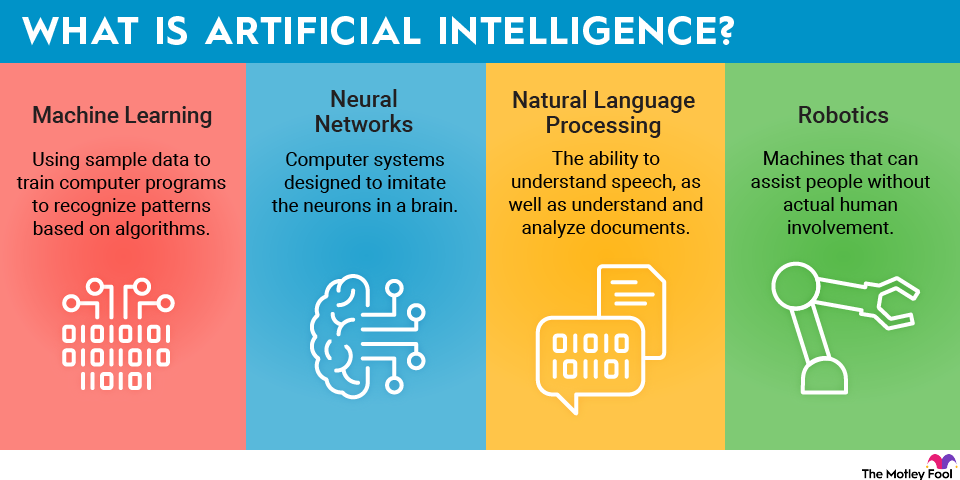
This image is property of m.foolcdn.com.
Definition of Artificial Intelligence
Artificial Intelligence (AI) refers to the development of computer systems that can perform tasks that typically require human intelligence. These tasks include understanding natural language, recognizing images and patterns, making decisions, and learning from experience. AI aims to mimic human cognitive abilities, such as problem-solving, reasoning, and learning, to provide intelligent solutions to complex problems.
History of Artificial Intelligence
The history of AI dates back to the 1940s when the idea of intelligent machines began to emerge. Researchers like Alan Turing and John McCarthy made significant contributions to the field. In 1956, the Dartmouth Conference marked the birth of AI as an official field of study. However, progress in AI development was slower than anticipated, leading to an “AI winter” in the 1970s.
Advancements in AI were rekindled in the 1980s with the development of expert systems. These systems used rule-based algorithms to simulate human expertise in specific domains. The 1990s witnessed breakthroughs in machine learning algorithms, boosting AI research and applications. In recent years, the availability of large datasets and increased computational power has accelerated AI advancements, leading to the emergence of deep learning and neural networks.
Types of Artificial Intelligence
Artificial Intelligence can be broadly categorized into two main types: Narrow AI (also known as weak AI) and General AI (also known as strong AI).
Narrow AI refers to AI systems designed to perform specific tasks within a predefined scope. These systems excel at specific tasks, such as speech recognition, image classification, or playing chess. Examples of narrow AI include virtual assistants like Siri and Alexa or recommendation systems on e-commerce platforms.
On the other hand, General AI aims to replicate human-level intelligence and possess the ability to understand, learn, and apply knowledge across various domains. General AI systems can adapt to new situations and solve a wide range of problems. However, true General AI remains a theoretical concept and is yet to be fully realized.
Narrow AI vs. General AI
The key distinction between Narrow AI and General AI lies in their capabilities. Narrow AI focuses on excelling at a specific task within a limited domain, while General AI aims to replicate human-like intelligence across various domains and adapt to new situations.
Narrow AI systems are highly specialized and trained to perform specific tasks efficiently. They can handle large volumes of data, make predictions, and automate routine tasks. General AI, on the other hand, involves the development of machines that can think and reason like humans, possessing a broad range of cognitive abilities.
Applications of Artificial Intelligence
Artificial Intelligence has found applications in various sectors and industries, revolutionizing the way we interact with technology and addressing complex problems. Some of the key applications of AI include:
- Healthcare: AI is being used for medical imaging and diagnostics, personalized medicine, drug discovery, and patient monitoring.
- Finance: AI-based algorithms improve fraud detection, risk assessment, and trading strategies.
- Transportation: Self-driving cars and intelligent traffic systems leverage AI to enhance safety and efficiency.
- Retail: AI-powered recommendation systems, chatbots, and virtual shopping assistants enhance customer experience.
- Manufacturing: AI is utilized for quality control, predictive maintenance, and process optimization.
AI is also being used in areas such as education, agriculture, cybersecurity, and entertainment, among others. Its transformative potential is far-reaching and continues to shape various aspects of our lives.
Key Concepts in Artificial Intelligence
To understand Artificial Intelligence better, it is important to familiarize ourselves with key concepts within the field. These concepts provide the foundation for AI development and applications.
Machine Learning
Machine Learning (ML) is a subset of AI that focuses on developing algorithms and statistical models that enable machines to learn from data and improve their performance over time. ML techniques involve training models on large datasets to recognize patterns and make predictions or decisions without being explicitly programmed.
Supervised learning, unsupervised learning, and reinforcement learning are three distinct types of machine learning. In supervised learning, models are trained using labeled data, where each data point is associated with a specific label or outcome. Unsupervised learning, on the other hand, involves training models on unlabeled data to discover patterns and relationships within the data. Reinforcement learning involves training models through a reward-based system, where they learn to take actions that maximize a reward.
Deep Learning
Deep Learning is a subset of Machine Learning that focuses on training large neural networks with multiple layers of interconnected nodes (artificial neurons). These neural networks analyze vast amounts of data to learn complex patterns and relationships, often achieving state-of-the-art performance in various tasks such as image recognition, natural language processing, and speech synthesis.
Deep Learning has been instrumental in advancing AI capabilities, thanks to its ability to handle unstructured data such as images, texts, and audio. Convolutional Neural Networks (CNNs) are commonly used in image recognition tasks, while Recurrent Neural Networks (RNNs) are effective in handling sequential data.
Neural Networks
Neural Networks are computational models inspired by the structure and functioning of biological brains. These networks consist of interconnected artificial neurons that process and transmit information. Each neuron receives inputs, applies a mathematical transformation, and generates an output signal that is passed to other neurons.
Neural Networks can be powerful tools for modeling and solving complex problems. Each layer of neurons in a network corresponds to a particular level of abstraction, enabling networks to learn hierarchical representations of data. By adjusting the weights and biases of the connections between neurons, neural networks can learn to recognize patterns, make predictions, and perform classification tasks.
Natural Language Processing
Natural Language Processing (NLP) is a branch of AI that focuses on understanding and processing human language. NLP enables computers to interact with humans in a way that is natural and intuitive, including tasks such as speech recognition, language translation, sentiment analysis, and chatbot interactions.
NLP algorithms employ various techniques, including syntactic and semantic analysis, machine translation, text summarization, and named entity recognition. Advanced NLP models, such as Transformer-based models like BERT and GPT, have achieved state-of-the-art performance in various language-related tasks, making significant strides in improving language understanding and generation capabilities.
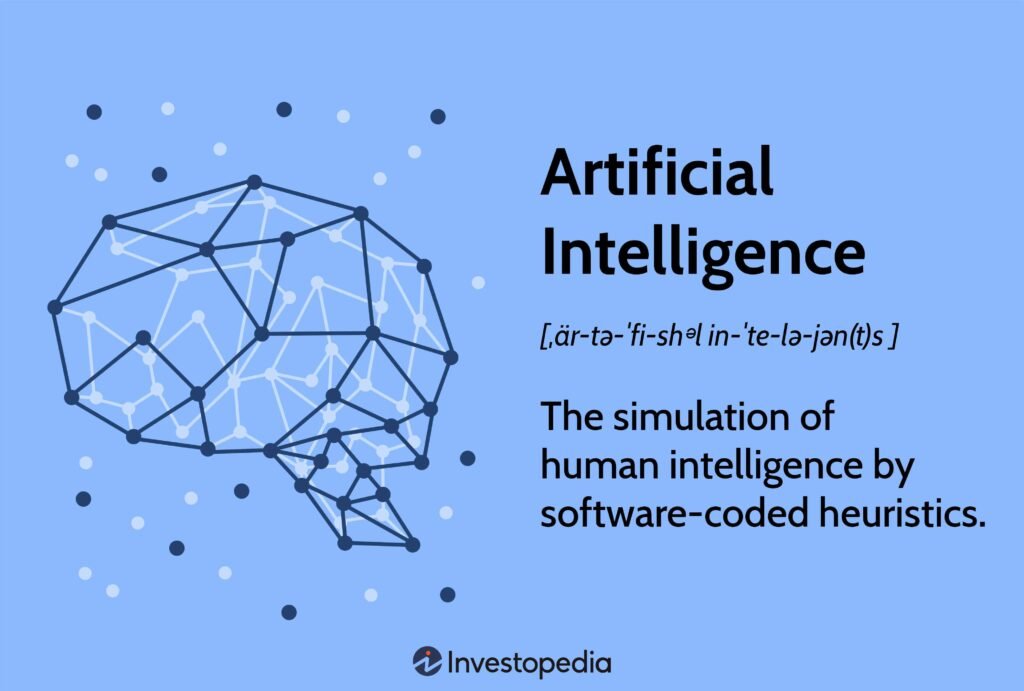
This image is property of www.investopedia.com.
The Role of Data in Artificial Intelligence
Data plays a crucial role in the development and success of Artificial Intelligence systems. The availability, quality, and diversity of data are essential factors that determine the performance and reliability of AI applications.
Importance of Data in AI
In AI, data serves as the fuel that powers models and algorithms. Machine Learning and Deep Learning systems require large amounts of data to recognize patterns, learn from examples, and generalize their knowledge to new situations. The more extensive and diverse the dataset, the better the performance and generalization capabilities of AI models.
Data-driven AI systems rely on historical and real-time data to make accurate predictions or decisions. This data can come from various sources, such as sensors, social media, user interactions, or databases. By analyzing patterns in the data, AI systems can identify trends, make predictions, and automate processes, leading to improved efficiency and effectiveness.
Data Collection and Processing
Collecting and processing data is a fundamental step in AI development. Data collection involves gathering relevant and representative data from various sources. This process may involve manual data annotation, data scraping, IoT sensors, or user interactions. Data needs to be labeled properly, ensuring that it is accurately annotated for supervised learning tasks.
Data processing involves cleaning, transforming, and preparing the collected data for analysis. This process includes removing outliers, handling missing values, normalizing data, and addressing data quality issues. Data processing ensures that the data is in a format suitable for training AI models and extracting meaningful insights.
Data Quality and Bias
Data quality is essential for the reliability and effectiveness of AI systems. High-quality data should be accurate, complete, reliable, and representative of the problem being addressed. Biased or incomplete data can lead to skewed or erroneous predictions, resulting in skewed outcomes and unfair decisions.
Bias in AI systems can emerge from biased data or biased algorithms. Data bias occurs when training data is not representative of the real-world population or contains inherent biases based on demographics, cultural factors, or historical imbalances. Algorithmic bias emerges when AI models learn from biased data, leading to discriminatory or unfair outcomes.
Ensuring data quality and mitigating bias requires rigorous data collection processes, algorithmic fairness assessments, and continuous monitoring and evaluation of AI systems. Addressing biases in AI is crucial for building trust, promoting fairness, and avoiding unintended negative consequences.
Data Privacy and Ethics
AI development raises important concerns around data privacy and ethics. The use of personal data in AI systems requires careful consideration of privacy regulations, consent, and secure data storage and transmission. AI applications that handle sensitive information, such as healthcare or finance, must adhere to stringent data protection guidelines.
Ethical considerations in AI involve the responsible and accountable development and use of AI systems. Fairness, transparency, and accountability are crucial in mitigating potential risks and ensuring AI benefits society as a whole. Ethical AI development involves adhering to ethical guidelines, avoiding harm and discriminatory outcomes, and involving stakeholders in decision-making processes.
Ethical Considerations in Artificial Intelligence
The ethical implications of Artificial Intelligence are a topic of increasing concern. As AI technologies become more advanced and pervasive, it is crucial to address the ethical considerations associated with their development and deployment.
Impact on Employment
One of the primary ethical concerns of AI is its potential impact on employment. AI systems have the capability to automate tasks traditionally performed by humans, raising concerns about job displacement and unemployment. While automation can enhance efficiency and productivity, it also places a burden on individuals whose jobs are at risk.
Ethical considerations in this regard include ensuring a just transition for workers, providing retraining and upskilling opportunities, and fostering job creation in new sectors. Policymakers, businesses, and society as a whole need to collaborate to mitigate the potential negative impact on employment and create an inclusive AI-driven workforce.
Trust and Accountability
Trust and accountability are crucial aspects of AI ethics. Users and stakeholders must have confidence in AI systems’ reliability, fairness, and accuracy. Transparent AI systems that provide explanations for their decisions and actions can help build trust and understanding.
Ensuring accountability requires mechanisms for auditing, monitoring, and evaluating AI systems. Organizations must be responsible for the actions and decisions of their AI systems, especially in critical domains such as healthcare, finance, or criminal justice. Ethical considerations involve establishing clear lines of responsibility and liability for AI systems’ outcomes.
Automated Decision-Making
AI systems often make decisions and predictions that have a significant impact on individuals and society. Ethical concerns arise when AI systems are deployed in domains such as hiring, lending, or criminal justice, where biased or unfair outcomes can have severe consequences.
Ensuring fairness and avoiding discriminatory outcomes is paramount. Ethical AI development involves addressing algorithmic bias, fairness assessments, and continuous monitoring of AI systems for adverse impacts. Just and equitable decision-making frameworks, with human oversight and intervention, are essential to ensure responsible and unbiased AI.
Bias and Fairness
Bias in AI systems is a critical ethical concern. Biases can emerge from biased data, biased algorithms, or biased human judgment during system design. These biases can perpetuate societal inequalities, reinforce stereotypes, and discriminate against disadvantaged groups.
Ethical considerations in AI require promoting fairness and minimizing biases in system design and decision-making processes. This involves diverse and inclusive teams working on AI development, algorithmic fairness evaluations, and regular audits to ensure fairness across different demographic groups.
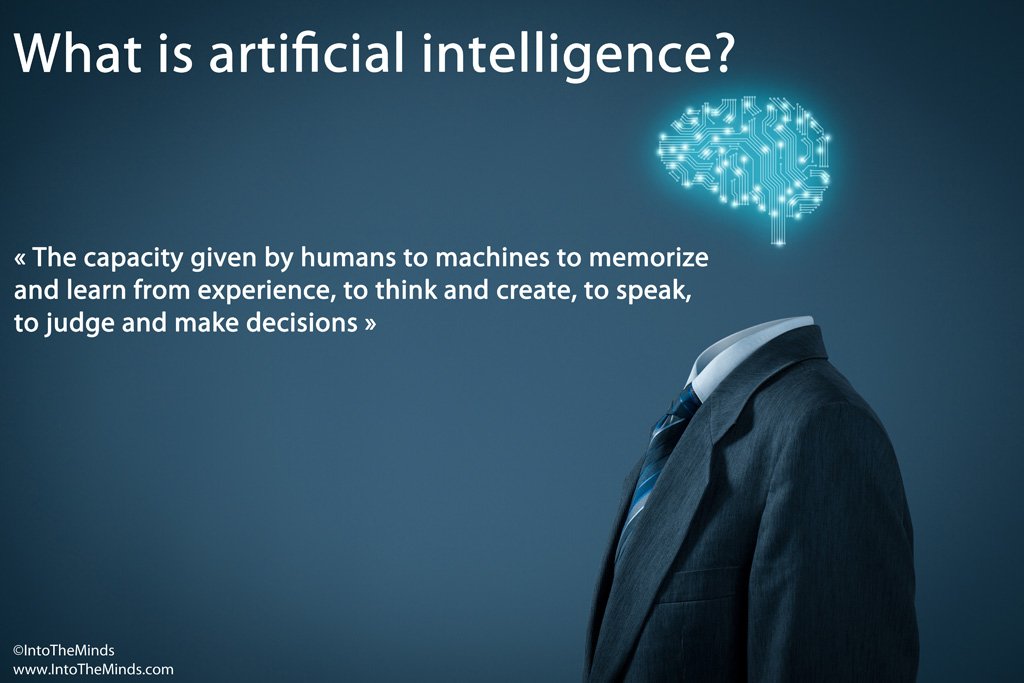
This image is property of www.intotheminds.com.
Benefits and Limitations of Artificial Intelligence
Artificial Intelligence offers numerous benefits and opportunities across various domains. However, it also has its limitations and challenges that need to be addressed.
Automation and Efficiency
AI systems can automate repetitive and mundane tasks, freeing up human resources to focus on complex and creative endeavors. Automation improves efficiency, reduces errors, and enhances productivity in sectors such as manufacturing, finance, and customer service.
AI-powered automation can also improve processes such as supply chain management, scheduling, and logistics. By analyzing vast amounts of data and making accurate predictions, AI systems enable organizations to streamline operations and make informed decisions.
Improved Decision-Making
AI systems can analyze massive datasets and extract valuable insights, which can significantly enhance decision-making processes. By detecting patterns, predicting trends, and identifying anomalies, AI-powered solutions improve the accuracy and speed of decision-making.
In healthcare, AI systems can assist in diagnosing diseases, determining the most effective treatment plans, and predicting patient outcomes. In finance, AI algorithms can analyze market trends and make reliable predictions for investment strategies.
Limitations and Challenges
Despite its numerous benefits, AI faces several limitations and challenges that need to be overcome. One significant challenge is the lack of interpretability and explainability in AI models, especially in deep learning architectures. Complex neural networks are often treated as black boxes, making it difficult to understand the decision-making process and trust the system.
Another challenge is the insufficient availability of high-quality training data for certain domains. AI models heavily rely on labeled data for training, which can be scarce, expensive, or biased in certain cases. The lack of diverse and representative datasets can limit the performance and fairness of AI systems.
Maintaining Human Control
Maintaining human control over AI systems is crucial to avoid potential risks and ensure ethical decision-making. While AI systems can automate tasks and make predictions, human oversight is necessary to monitor and interpret the outcomes.
Human intervention is essential to address ethical concerns, rectify biases, and consider the broader societal impact of AI systems. In critical domains like healthcare or autonomous vehicles, human control is indispensable to make the final decisions and take responsibility for the outcomes.
Future Trends in Artificial Intelligence
The future of Artificial Intelligence holds immense potential for further advancements and integration into everyday life. Several trends are shaping the trajectory of AI development and its applications.
Advances in AI Research
AI research continues to push the boundaries of what is possible. Advances in machine learning algorithms, deep learning architectures, and reinforcement learning techniques are driving significant improvements in AI performance. Research in explainable AI and trustworthy AI is also gaining momentum to address the challenges of transparency and accountability.
AI in Everyday Life
AI technologies are increasingly becoming a part of our daily lives. Virtual assistants like Siri, Alexa, and Google Assistant have become ubiquitous, providing assistance with tasks such as setting reminders, playing music, or answering questions. AI-powered recommendation systems influence our choices in online shopping, entertainment, and content consumption.
The integration of AI in smart homes, wearable devices, and internet-connected appliances is making our living spaces more intelligent and responsive. AI-driven technologies such as self-driving cars, delivery drones, and intelligent personal robots are revolutionizing the way we commute, transport goods, and interact with our environment.
AI in Healthcare
AI has the potential to transform healthcare, improving patient outcomes, and revolutionizing medical research. AI-powered systems can assist in medical imaging analysis, early disease detection, drug discovery, and personalized treatment plans. Virtual healthcare assistants can provide guidance and support in managing chronic conditions or adhering to medication schedules.
The integration of AI with wearable devices and remote monitoring technology enables continuous health monitoring and early intervention. AI systems can make sense of vast amounts of patient data, identify patterns, and predict disease progression, contributing to personalized and precision medicine.
Ethical AI Development
Ethical considerations in AI development will play a significant role in shaping the future of the field. Ethical AI development involves the responsible and accountable use of AI systems, ensuring fairness, transparency, and avoiding unintended negative consequences.
Organizations and policymakers are increasingly focusing on developing guidelines and regulations for AI development and deployment. Key ethical principles include transparency, fairness, privacy, accountability, and the involvement of diverse stakeholders in decision-making processes. The future of AI will depend on responsible and ethical practices to maximize its benefits and minimize potential risks.

This image is property of d1m75rqqgidzqn.cloudfront.net.
Controversies in Artificial Intelligence
The rapid advancement of Artificial Intelligence has sparked several controversies and concerns that need to be addressed. These controversies highlight the potential risks and challenges associated with AI development and deployment.
AI and Privacy Concerns
The widespread use of AI technologies raises concerns about data privacy and surveillance. AI systems often rely on vast amounts of personal data to make accurate predictions or recommendations. Ensuring privacy regulations, data encryption, and secure storage becomes critical to protect individuals’ sensitive information.
AI systems that collect and process personal data must adhere to strict privacy guidelines. Transparency in data collection practices, informed consent, and robust data protection measures are necessary to build trust and protect user privacy.
AI and Job Displacement
One of the biggest controversies surrounding AI is the potential impact on employment. The automation of tasks traditionally performed by humans raises concerns about job displacement and unemployment. While AI can create new job opportunities, the transition and reskilling of the workforce remain significant challenges.
Ensuring a just and inclusive transition for workers is crucial. Upskilling and retraining programs can equip individuals with the necessary skills to adapt to the changing job market. Policies focusing on job creation in emerging sectors and promoting collaboration between humans and AI systems can help mitigate the potential negative impact on employment.
AI and Social Impact
AI systems can have profound social implications, both positive and negative. Concerns arise regarding the concentration of power and control in the hands of a few organizations or individuals who develop and own AI technologies. Fair distribution of benefits, access to AI resources, and avoiding biases and discrimination are key ethical considerations.
Addressing the digital divide and ensuring equal access to AI technologies is essential to prevent exacerbating societal inequalities. Collaborative efforts between governments, organizations, and communities are necessary to ensure that AI technologies benefit society as a whole.
AI and Autonomous Weapons
The development and deployment of autonomous weapons systems powered by AI raise significant ethical and moral concerns. These systems have the potential to operate without human intervention, making life-or-death decisions on the battlefield.
The lack of human control and accountability in autonomous weapons systems raises questions about the ethics and legality of their use. International discussions and agreements are necessary to regulate the development and deployment of such technologies, ensuring adherence to humanitarian principles and avoiding the indiscriminate use of force.
Artificial Intelligence in Popular Culture
Artificial Intelligence has captured popular imagination and has been a recurring theme in movies, books, video games, and everyday life.
AI in Movies and Books
Artificial Intelligence has been a recurring theme in science fiction movies and books. From classics like “2001: A Space Odyssey” and “Blade Runner” to more recent films like “Ex Machina” and “Her,” AI has often been portrayed as both a benefit and a threat to humanity. These portrayals explore the ethical implications, human-AI relationships, and the potential consequences of advanced AI systems.
Books like Isaac Asimov’s “I, Robot” or Philip K. Dick’s “Do Androids Dream of Electric Sheep?” have delved into the philosophical and ethical questions surrounding AI, blurring the boundaries between humans and machines.
AI in Video Games
Artificial Intelligence is integral to the gaming industry, enabling realistic and immersive experiences. AI algorithms power non-player characters (NPCs) in video games, making them behave intelligently and adapt to the player’s actions. AI in video games is used for tasks such as pathfinding, decision-making, and generating dynamic and engaging gameplay.
The development of AI-powered game bots and virtual opponents has also led to advancements in AI research and competition. AI agents competing in games like chess, Go, or Dota 2 have demonstrated remarkable achievements, challenging human players and pushing the boundaries of AI capabilities.
AI Personal Assistants
AI personal assistants, such as Siri, Alexa, and Google Assistant, have become increasingly popular in everyday life. These virtual assistants use natural language processing and machine learning to interpret user commands, answer questions, and perform tasks such as setting reminders, playing music, or controlling smart home devices.
AI personal assistants have become an integral part of our daily routines, providing convenience and assistance in various aspects of life. Their presence highlights the potential of AI to augment human capabilities and simplify everyday tasks.
Public Perception of AI
Public perception of AI is influenced by various factors, including media portrayals, personal experiences, and cultural narratives. While some perceive AI as a boon for progress and innovation, others express concerns about its potential risks and implications.
Public understanding and awareness of AI can shape its broader acceptance and adoption. Educating the public about AI capabilities, limitations, and ethical considerations is crucial to foster informed conversations and encourage responsible AI development and use.
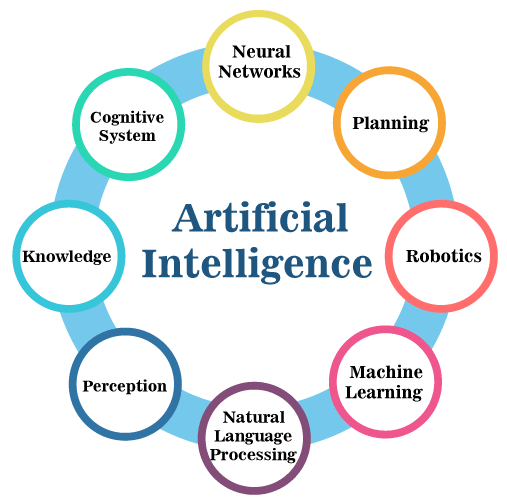
This image is property of static.javatpoint.com.
Artificial Intelligence and the Future of Work
The integration of Artificial Intelligence into the workplace raises important considerations about job markets, skill requirements, and the need for upskilling and education.
Impact on Job Market
AI’s potential to automate routine tasks and augment human capabilities has raised concerns about job displacement. Some jobs may become obsolete, while new job roles that leverage AI technologies will emerge. The impact on the job market will depend on the extent to which AI is integrated and the ability of individuals and organizations to adapt to changing skill requirements.
It is crucial to note that AI is more likely to augment human abilities rather than completely replace them. Jobs that require empathy, creativity, complex problem-solving, and critical thinking are less susceptible to automation. Preparing the workforce for the changes brought by AI is essential to ensure a smooth transition and minimize potential disruptions.
New Job Opportunities
The integration of AI technologies into various sectors opens up new job opportunities. These opportunities include roles such as AI specialists, data scientists, machine learning engineers, and AI ethicists. The demand for professionals skilled in AI programming, data analysis, and algorithm development is on the rise.
AI also presents opportunities for entrepreneurs and innovators to create AI-driven startups or develop new products and services that leverage AI capabilities. Identifying these emerging job opportunities and providing the necessary training and education will be crucial in preparing individuals for the changing job landscape.
Upskilling and Education
The rapid advancement of AI underscores the importance of upskilling and education. The workforce needs to develop new skills to adapt to the changing job requirements. Emphasizing skills such as critical thinking, creativity, adaptability, and interdisciplinary knowledge will be essential.
Investments in AI education and training programs, both within formal education systems and in the workplace, are necessary to equip individuals with the necessary skills to thrive in an AI-driven future. Continuous learning and lifelong education are becoming increasingly important to stay abreast of AI developments and remain competitive in the job market.
Human-Machine Collaboration
The future of work will involve increased collaboration between humans and AI systems. Humans possess unique qualities such as creativity, empathy, intuition, and ethical judgment that are difficult to replicate in machines. AI, on the other hand, excels at data analysis, pattern recognition, and automation.
Human-machine collaboration will involve leveraging the strengths of both humans and AI systems. This collaboration can lead to more efficient and effective decision-making, innovative problem-solving, and enhanced productivity. Ethical considerations, clear lines of responsibility, and effective communication channels between humans and AI systems are paramount to ensure successful collaboration.
Conclusion
Artificial Intelligence has come a long way since its inception, revolutionizing various aspects of our lives. It encompasses a wide range of technologies and techniques that aim to replicate human-like intelligence and enable machines to perform complex tasks.
Understanding the history, types, and key concepts in AI provides a foundation for comprehending its applications and potential. AI holds immense promise in areas such as healthcare, finance, transportation, and manufacturing, offering improved efficiency, enhanced decision-making, and transformative possibilities.
However, ethical considerations in AI development and deployment are paramount. Addressing concerns related to employment, trust, fairness, and bias is necessary to ensure responsible and accountable AI systems. It is essential to foster collaboration between stakeholders, including governments, organizations, and individuals, to shape the future of AI in an ethical and inclusive manner.
As AI continues to shape our society and culture, public perception, education, and awareness play a vital role. Embracing AI’s potential, preparing for the changing job landscape, and ensuring human-machine collaboration will be essential in harnessing the benefits of AI while minimizing its potential risks.
The future of Artificial Intelligence lies in responsible development, conscious integration, and ethical decision-making. By striving for a balance between technological advancement and societal well-being, we can shape an AI-driven future that benefits individuals, communities, and the world at large.

